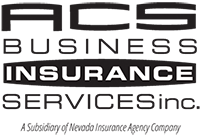Shkreli’s Strategy to Jack Up Drug Prices May Be Curbed by FDA
Featured in BloomberBusiness – by Anna Edney
With a small regulatory change, the U.S. Food and Drug Administration may have just stopped the next Martin Shkreli.
The agency said Friday that it will prioritize review of new applications for generic drugs that would compete with treatments made by only one company. That could help make it less profitable for somebody like Shkreli, who was until last year the chief executive officer of Turing Pharmaceuticals AG, from buying an old, patent-expired drug with no competition and jacking up the price.
At Turing, Shkreli became notorious for acquiring Daraprim, a decades-old anti-parasitic treatment, and increasing the price to $750 a pill from $13.50. Because Turing is the only company with FDA approval for the medicine, he could charge whatever he wanted. He defended the move by saying he was playing by the rules, and perhaps should have increased the price even more.
The FDA estimates the change in prioritization could expedite review of as many as 125 generic drug applications, Sandy Walsh, an agency spokeswoman, said via e-mail. The agency already prioritized review for generics that would be the first to compete with a brand-name product.
Shkreli is currently facing securities fraud charges related to a separate former company and several hedge funds that he used to run. He has maintained his innocence and pleaded not guilty. Turing fired Shkreli after his arrest. Turing and Shkreli didn’t immediately respond to requests for comment.
Old Drugs
With older drugs that have lost patent protection, the companies that originally invented them may have ceased manufacturing or sold the rights to another owner, leaving a single version to monopolize the market. Since it can take months or years to get a new version approved, whoever holds the rights in the meantime has huge pricing power.
In January, senators asked Janet Woodcock, director of FDA’s Center for Drug Evaluation and Research, whether the agency could prioritize reviews of drugs that would compete with ones made by just one manufacturer. At the time, Woodcock said that the agency will expedite a generic drug review if there’s only one manufacturer and a shortage is possible, but not because of price hikes resulting from a monopoly.
The agency collects fees from drug companies to review their applications in a timely manner. The FDA’s goal for this fiscal year is to review 75 percent of generic drug applications in 15 months, according to Woodcock’s January testimony before the Senate Health, Education, Labor and Pensions Committee. The agency received about 1,500 generic drug applications in fiscal 2014, she said.

